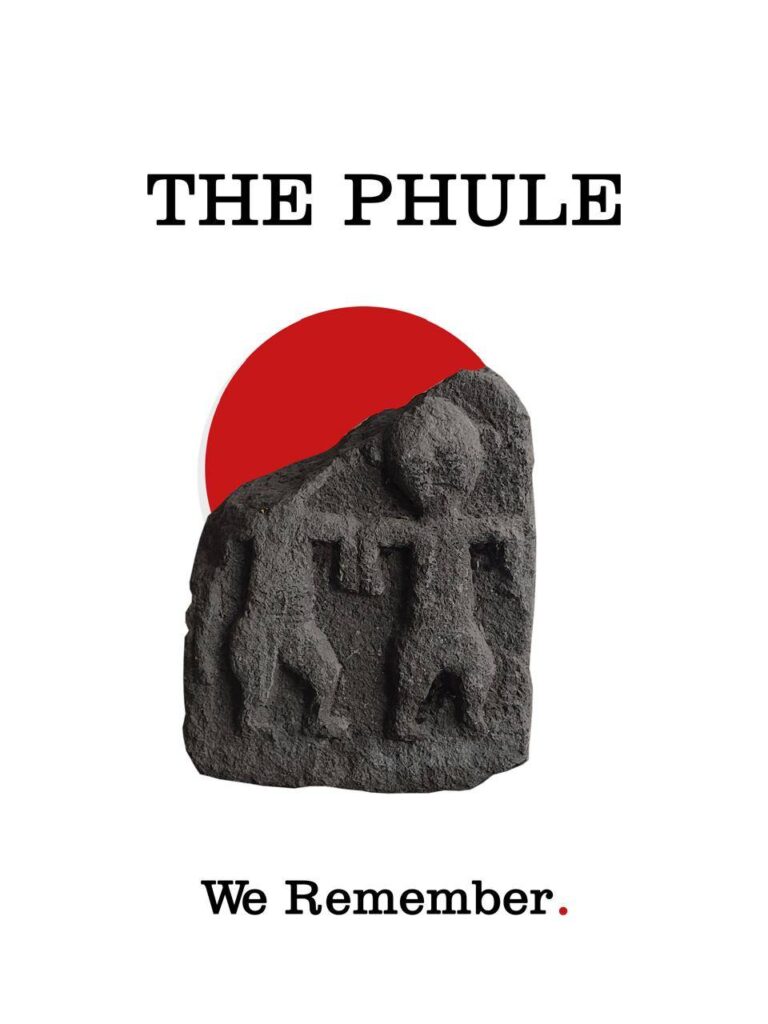The Phule We Remember: As remembered by R. S. Ghadge

In the year 1882, at the age of ten, I entered the Army as an Eden Resident Recruit Boy. In 1887, I came to Pune for certain matters concerning the Cantonment. It was on this occasion that I first saw Mahatma Phule. He would visit the Camp every Sunday, maybe because it was a day off work. Tatyasaheb would deliver addresses to the members of the Armed Forces, and I had heard two such speeches at the Cantonment’s Line Bazaar. Each gathering comprised some fifty to sixty men. My recollection of his words is but partial, yet I have endeavoured to set down whatever remains in my memory. He also addressed the soldiers at the Cantonment while working on a section of (Shetkaryacha) Asud.
First, he spoke on the importance of education, declaring that “The minds of the warrior Kshatriyas had been subjugated by the Bhats and Brahmins. The governance of our country must not rest in the hands of these individuals, but rather with the Kshatriyas — men like us — who shed our blood in service of the country.” Addressing the Maratha soldiers, he would say, “The Mahars and Mangs are, in truth, Kshatriyas. It is for this very reason that the Bhats deem them lowly. Under the spell of these Bhats, we too have oppressed the Untouchables for thousands of years. For this, we shall be held accountable before God. Therefore, from this moment forth, we must cease this injustice. With fraternity in our hearts, we must uplift them, for in their rise lies our own elevation in the eyes of the Almighty. Furthermore, let us put the Brahmins in their rightful place — cast out those who perpetuate hierarchy and discrimination within the country and its religion — so that they might, at last, come to their senses. The farmers, artisans, labourers, and soldiers of this land must be the first to attain literacy, for it is their toil alone that shall uplift the country. You are valiant warriors — do not bow before the spineless Bhats. Educate your children with self-respect.” He would offer lengthy counsel along these lines.
At the Cantonment, he distributed copies of Dinbandhu and his own writings, free of charge. The first time I visited Tatya’s residence, I was accompanied by Gopalbua Valangkar, and thereafter, my visits became quite frequent. There, the notions of touchability and untouchability, purity and pollution held no place. Tatya maintained friendships with many members of the Armed Forces. Officials such as Subhedar Major Daryajirao Thorat, Sardar Bahadur Jamedaar Lakshmanrao Desai, and Hawaldar Shivajirao Desai, among others, eventually became followers of Jotirao. His reformist zeal did not rest in words alone — he put his principles into practice, particularly in matters of inter-caste marriage and shared meals with members of the Untouchable community. Simply put, he harboured a deep and sincere fervour for the upliftment of us untouchables.
The Mahars and Mangs, tormented by the upper-caste, had begun embracing Islam and Christianity. Phule regarded this with disapproval. He believed that tyranny at the hands of priests existed within all religions. Instead of seeking solace in foreign faiths, he urged that equality and the eradication of caste could be pursued through the Satyashodhak way of life, which he had established. He maintained that it is permissible to get educated in British rule, which was a window of opportunity. Hence, he implored the Untouchables to seek knowledge and wisdom without delay. His heart was vast as the ocean, filled to the brim with concern for the well-being of the Untouchables.
Had Jotirao been alive today, he alone could have recounted the history of the torments inflicted upon him by the upper-caste Hindus — persecution suffered merely for championing the cause of the downtrodden. No other soul could truly do justice to that memory. I vividly recall two or three instances of the tribulations he endured. He was, in my earnest opinion, the only man in the history of Hindustan who fought, with unyielding resolve, for the rights of the Untouchables, undeterred by the continual humiliation he faced at the hands of those he once called his own. I shall take a bold step further and declare: God may have created us as men, but it was Jotirao who made us realise what it truly means to be human. And for that, I say — long live the Mahatma, and long live the one who birthed him!
(R. S. Ghadge’s memory has been translated by Sharvari Deshpande, edited by Rucha Satoor and Ninad Pawar, and peer-reviewed by Suraj Thube.)
